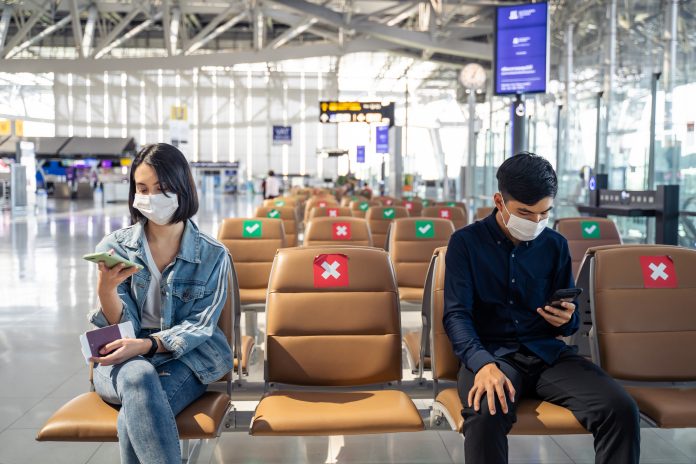Research has found that countries with higher success in minimising coronavirus cases and deaths, have more trust within their society and governments
In this study, it was found that there is a “threshold effect” in countries where at least 40% of people agree “most people can be trusted”. This percentage supported effective reduction of cases and deaths during the beginning of the pandemic in 2020.
Analysing coronavirus data in 2020, the study found that more trusting societies achieved faster declines in infections and deaths from peak levels of coronavirus cases.
For instance, levels of trust in the UK are at the critical 40%, as compared with Scandinavian countries, at more than 60%. Another country with high levels of trust within its society is China.
Analysing data involving mask wearing and social distancing
Behaviours vital to stopping the spread of COVID-19, such as mask-wearing and social distancing depend on mutual trust to be effective, in which these rules more commonly followed in countries with lower cases and deaths.
The study, published in the journal Scientific Reports, shows the effect of more rigid governmental interventions on the spread of COVID-19 is not direct – as most governments applied similarly stringent restrictions but had hugely varying success in bringing down case numbers and deaths. This is partly due to the fact that more stringent governments tend to be associated with less trusting societies.
Professor Lenton said: “Our results add to evidence that trust within society benefits resilience to epidemics. Building trust within communities should be a long-term project for all nations because this will help them cope with future pandemics and other challenges such as extreme events caused by climate change.”
Resilience to COVID relies on trust of Government and other people
The researchers measured over 150 countries’ resilience to COVID-19 as the nationwide decay rate of daily cases or deaths from peak levels, using information from the Our World in Data COVID-19 dataset up to 1 December 2020, which was a period before coronavirus vaccines became available.
Resilience to COVID-19 varied by a factor of 40 between countries for cases per capita, and by a factor of 25 for deaths per capita.
All countries where more than 40% of respondents answered “most people can be trusted” achieved a near complete reduction of new cases and deaths, as did some less-trusting societies. This implied that trust in each other is only one of several factors at play in better managing the pandemic.
Analysing countries, the researchers found no significant correlation between trust in government and success at bringing down cases and deaths. Wealth and effective healthcare helped but was less important than trust within societies.











